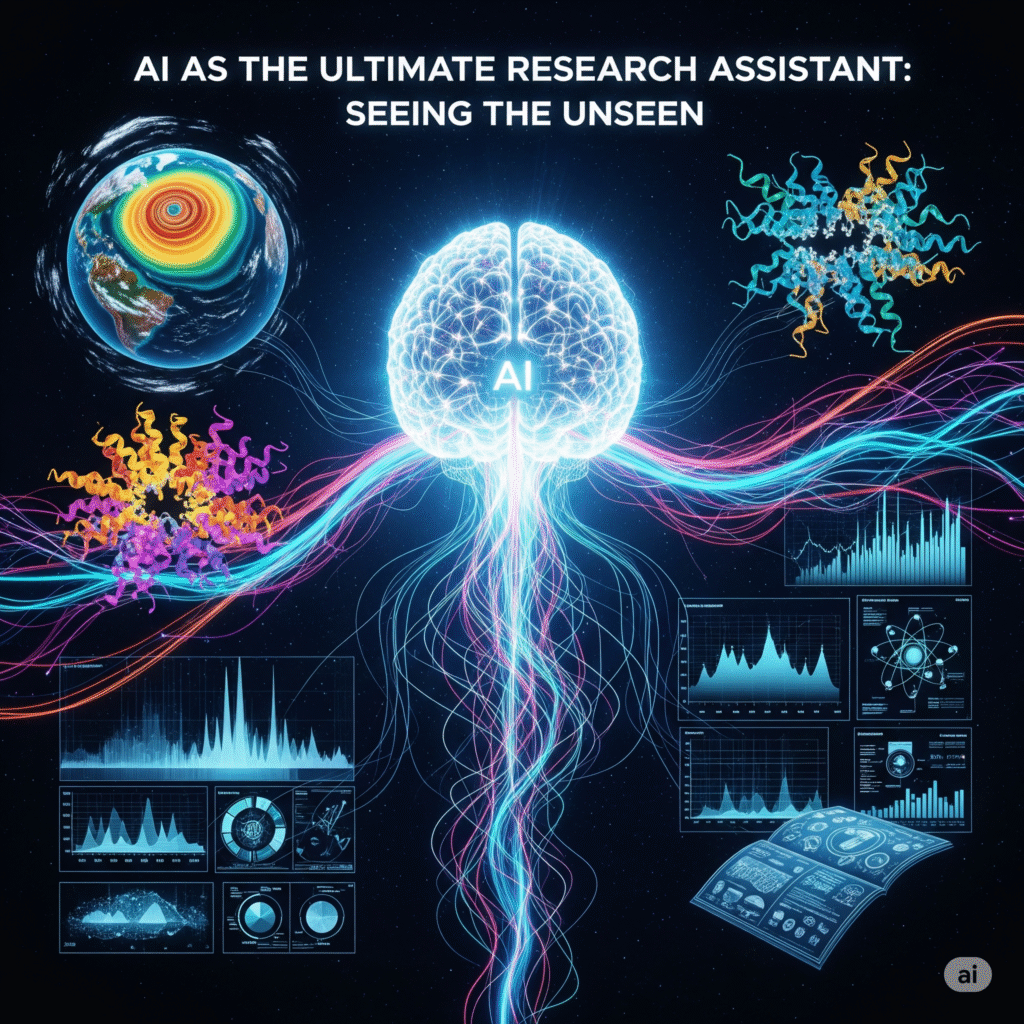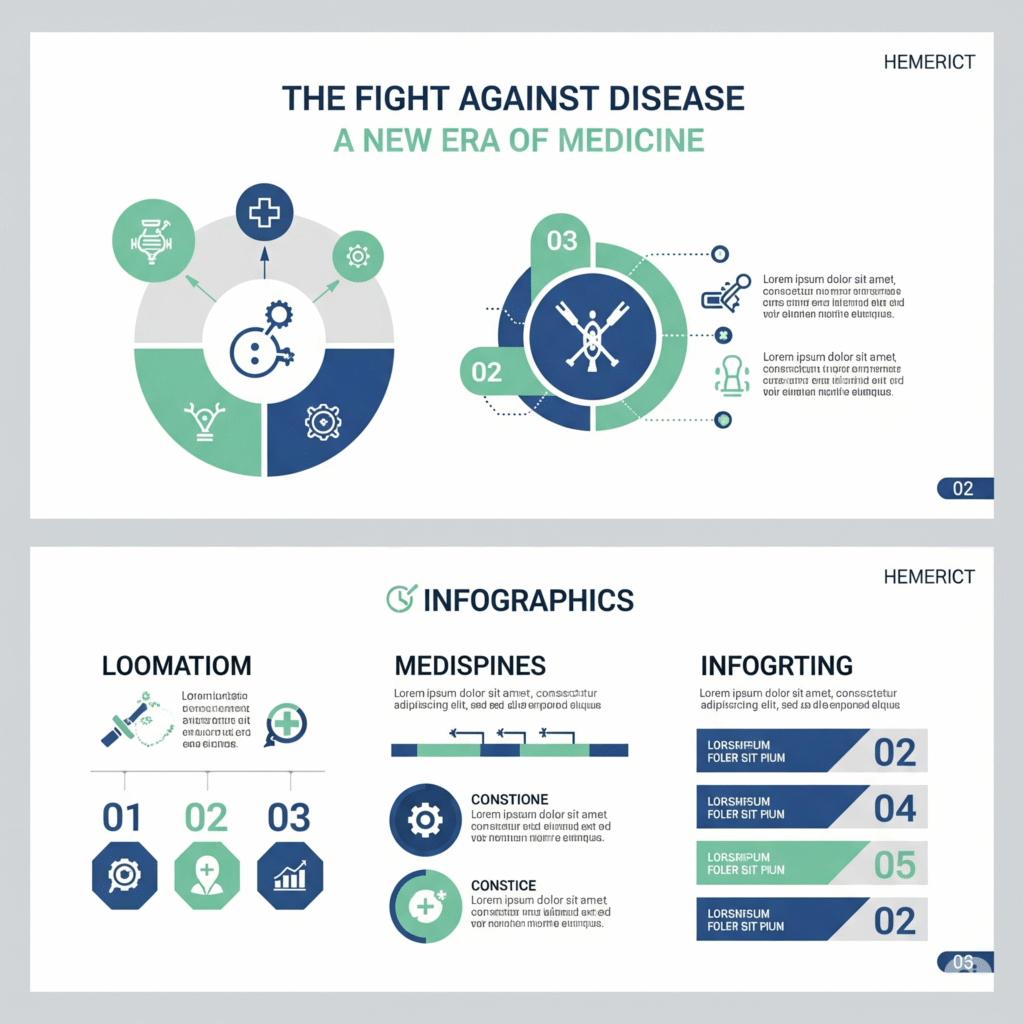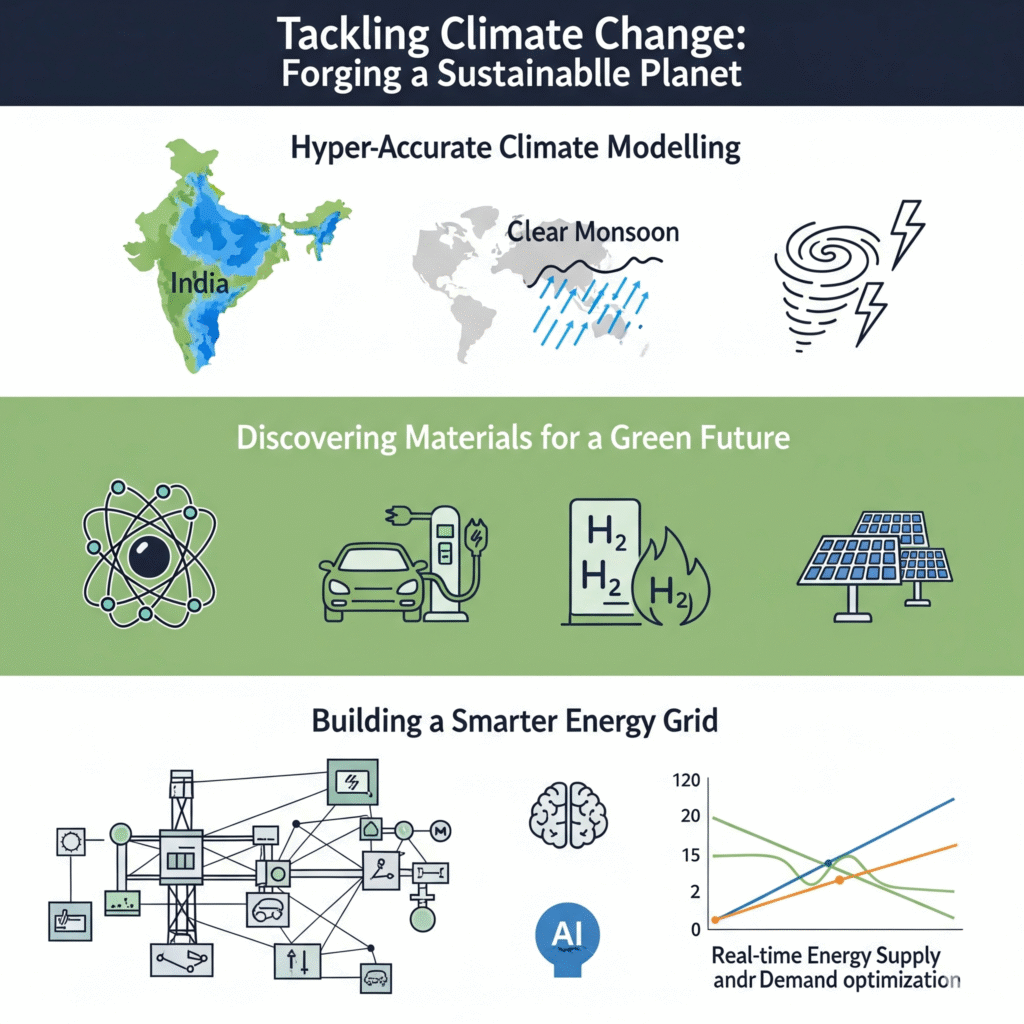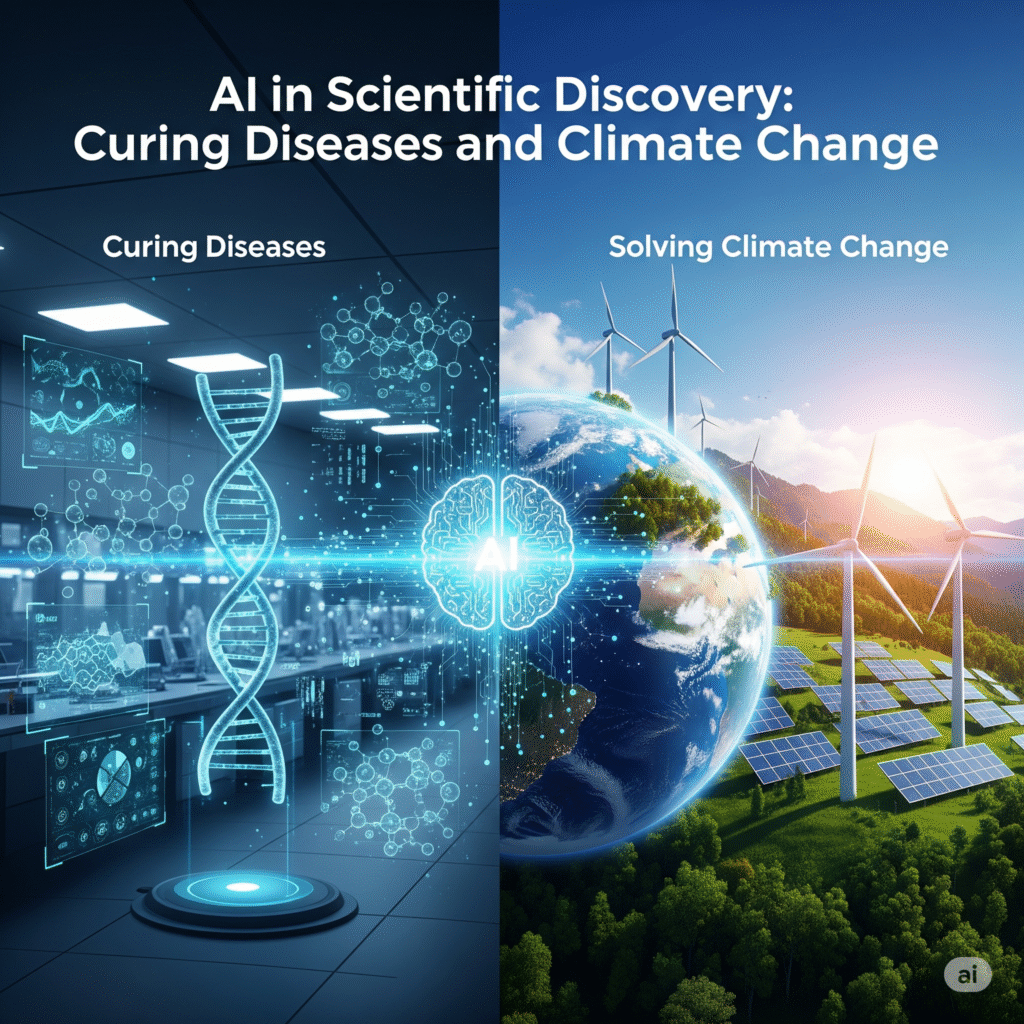For centuries, humanity’s greatest challenges—pandemics, climate change, incurable diseases—have seemed like insurmountable mountains. We’ve climbed them slowly, with teams of dedicated scientists chipping away at the immense complexity one discovery at a time. But what if we had a partner capable of seeing the entire mountain at once?
Here in August 2025, that partner is no longer science fiction. Artificial Intelligence is stepping out of the lab and into the role of a revolutionary research collaborator. It’s not here to replace our brilliant scientists but to empower them with a new kind of vision, capable of processing data at a scale previously unimaginable. AI is becoming the key to unlocking solutions to our most existential threats, from discovering life-saving drugs to forging a sustainable future.

AI as the Ultimate Research Assistant: Seeing the Unseen
Why is AI such a game-changer for science? It’s about two things: speed and complexity.
The universe of scientific data is vast. There are more potential drug compounds than stars in the galaxy and more variables in our climate system than any human could track. AI thrives in this complexity. It can sift through billions of data points, identify subtle patterns, and run countless simulations in the time it would take a human researcher to read a single paper.
Think of it as the ultimate research assistant, one that can read every scientific paper ever published, understand the intricate 3D shapes of proteins, and model the global climate for the next century, all before breakfast.

The Fight Against Disease: A New Era of Medicine
In India and across the world, AI is accelerating the fight against disease on multiple fronts.
- Discovering Drugs at Lightning Speed: Traditionally, finding a new drug is a decade-long, multi-billion dollar process. AI is changing the game. By understanding the complex 3D structures of proteins—the building blocks of life—AI models like DeepMind’s AlphaFold can predict which molecules will effectively “fit” into a diseased protein to stop it. This is helping researchers in labs at institutions like the CSIR rapidly identify promising candidates for diseases like tuberculosis, dengue, and specific cancers prevalent in the Indian subcontinent.
- Personalised Medicine for a Diverse India: One-size-fits-all medicine doesn’t work for a population as genetically diverse as India’s. AI is making personalised medicine a reality. By analysing a patient’s genetic data, lifestyle, and environment, AI can help doctors predict their risk for certain diseases and recommend treatments and preventative measures tailored specifically to them.
- Spotting Disease Before Symptoms Appear: AI-powered diagnostic tools are already being deployed in Indian hospitals. These algorithms can analyse medical images like X-rays, CT scans, and retinal scans with superhuman accuracy, spotting the earliest signs of diseases like diabetic retinopathy and lung cancer, often long before a human doctor could detect them. This means earlier treatment and better outcomes for millions.

Tackling Climate Change: Forging a Sustainable Planet
The climate crisis is a problem of staggering complexity, and AI is providing the tools we need to understand and combat it.
- Hyper-Accurate Climate Modelling: AI is revolutionising climate science by creating models that are faster and more accurate than ever before. For India, this means better predictions of monsoon patterns, which are vital for our agriculture and water security. It also helps us forecast extreme weather events like cyclones and heatwaves, allowing for better preparation and saving lives.
- Discovering Materials for a Green Future: The key to solving climate change lies in new technology. AI is now at the forefront of materials science, designing novel materials from the atom up. Imagine AI discovering a new alloy for lighter, more efficient electric vehicles, a new catalyst for creating clean hydrogen fuel, or a new polymer for building cheaper and more durable solar panels. These AI-driven discoveries are accelerating India’s ambitious transition to renewable energy.
- Building a Smarter Energy Grid: As India increasingly relies on solar and wind power, managing our national energy grid becomes more complex. AI can optimise the flow of energy, predict demand and supply in real-time, and prevent blackouts, ensuring a stable and efficient transition to a green energy future.
Frequently Asked Questions (FAQ)
Q1: Does this mean AI will replace human scientists?
Not at all. Think of AI as a powerful co-pilot, not the pilot. AI handles the massive data processing and pattern recognition, freeing up human scientists to do what they do best: ask creative questions, design experiments, think critically, and apply their intuition. It’s a partnership that accelerates discovery.
Q2: How reliable are these AI-driven discoveries?
AI predictions and discoveries are not taken at face value. They are treated as highly educated hypotheses that must still be rigorously tested and validated through real-world experiments by scientists in the lab. AI points them in the right direction, saving years of trial and error.
Q3: Are these AI solutions actually being used in India today?
Yes. As of 2025, AI-powered medical diagnostics are already in use in many hospitals. Indian research institutions like the IITs and IISc Bangalore are actively using AI for drug discovery and climate modelling. While a new AI-discovered drug might still be in clinical trials, the process is moving faster than ever before thanks to these tools.
Q4: Can AI really “solve” climate change?
AI is not a single magic solution, but it is one of our most powerful tools in the fight. It provides the crucial intelligence needed to make better decisions, accelerate technological innovation, and manage the complex transition to a sustainable global economy. It gives us a fighting chance to address the problem at the scale it demands.

AI’s ability to process vast amounts of data is a game-changer, especially in fields like drug discovery and climate modeling. What really excites me is how it empowers scientists, making breakthroughs faster and more precise without replacing the human element in research.